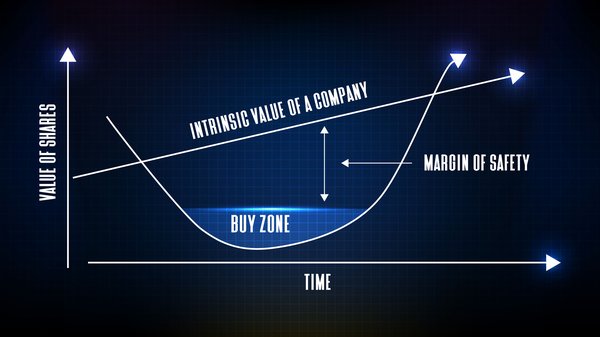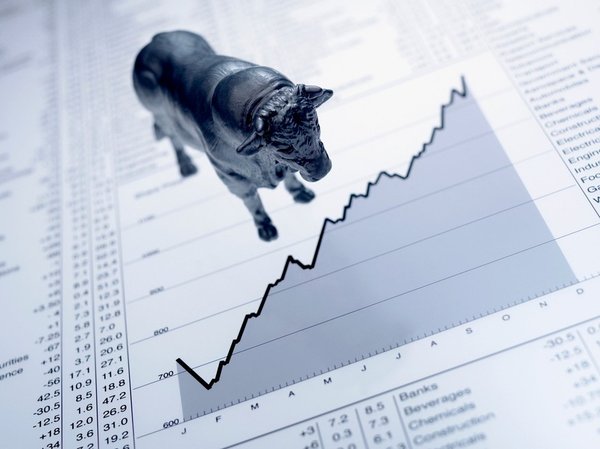An institutional investor is a business that invests money on behalf of its clients. Institutional investors are considered professional investors and are often generalized as "Wall Street."

Institutional investors are responsible for a lot of market noise, moving billions in and out of investments. Let's go over how they work, the risks of using institutional investing, and how institutions make markets.
Understanding institutional investing
Let's start with the different types of institutions and their customers:
- Mutual funds: Mutual funds are pools of money managed professionally for individual investors. You may be familiar with these if you've looked through the options for a 401(k) program or chatted with a financial advisor. Mutual funds have fallen out of vogue in recent years in favor of ETFs.
- Exchange-traded funds (ETFs): Exchange-traded funds are mostly the same as mutual funds, but they trade on an exchange. (When you buy a mutual fund, you're buying into it directly with the company and often have to pay some sort of commission or fee.) ETFs are generally invested passively, which means they choose investments based on a screen or factor instead of a subjective choice. Individuals and institutions alike use ETFs for investing; they are an ideal starter investment.
- Hedge funds: Hedge funds aren't available to the general public because they generally take a riskier approach to investing. Hedge funds can use leverage, derivatives, shorting, and concentration levels that the other fund types don't often use. To be able to invest in a hedge fund, you either need to become an institution or have enough money to be declared an accredited investor.
- Insurance companies: Insurance companies make a lot of their money from the returns they generate on the "float." The float is the aggregate amount of premiums that have been paid to the insurance company without any claims against them. Until the company needs to pay the float out as a claim, it invests it in various fixed income assets (e.g., bonds) and sometimes stocks.
- Pension and endowment funds: Pension funds invest the pools of money to be used to make pension payments. Most pensions in the U.S. have been shifted to a defined benefit plan such as a 401(k) or 403(b), but there are still trillions of dollars invested by pension funds. Endowment funds invest on behalf of universities, hospitals, and other nonprofits. Both types tend to invest conservatively and diversify heavily to reduce risk.
Most institutional investors must register with the Securities and Exchange Commission and file regulatory forms both on an initial and ongoing basis. Mutual and exchange-traded funds must report their holdings multiple times per year, and hedge funds must report holdings above a certain dollar amount.
Many institutions aren't allowed to hold ownership positions in stocks that amount to more than 10% of the company. Generally speaking, institutional investors are allowed to invest using financial instruments (for example, leverage and derivatives) that some retail investors can't, as long as they disclose how the instruments will be used.
Risks of institutional investing
Here are a few of the risks you take when working with institutional investors:
- Too much money: It sounds strange, but many institutions manage too much money. They can't get into smaller stocks and may move the market even in bigger stocks. They have to be very mindful of where to invest and don't have the flexibility of an individual investor.
- Active management risk: Outside of funds invested passively (as discussed with ETFs above), most institutions invest money actively using the opinions of managers. All humans deal with various biases and can be responding to different incentives than you'd like.
- Fees: Fees can kill any investment. Institutional investors charge fees that range from 0.1% to 50% of the profits generated. No strategy is bulletproof, and Wall Street knows how to structure deals to make sure it gets paid -- regardless of returns.
Institutional investing market
With the above risks considered, institutional investors are still incredibly important to the market. It literally wouldn't exist without them. Every highly traded exchange has market makers that increase liquidity and drive down transaction costs.
For example, let's say you want to buy shares of Nike (NYSE:NKE). When you put the order in with your broker, it is probably executed immediately. That isn't because you just happened to put the order in simultaneously with another party who conveniently wants to sell the exact same number of shares. It's because a market maker accepted the transaction. Market makers are trading shares throughout every day on the market. They buy shares from one party and then sell them seconds later to another. They aren't trying to make money on the trades; instead, they make money from the bid/ask spread.
When you sell a stock, you receive the bid price of the stock. When you buy, you pay the ask price. For most stocks, these are only a few cents apart, if that much. Market makers are processing potentially millions of transactions each day and make the spread on each. Stocks with more trading volume will have more market makers competing, which drives the bid/ask spread down. More thinly traded stocks have a higher spread, but it's still worth it because you may not have a chance to even buy without it.
Related Investing Topics
Making the market work
Institutions make up the majority of volume on the stock market. They invest trillions of dollars each year for beginning investors and accredited investors alike. There are certainly risks to becoming dependent on institutional investors, but they make the market work, and they make it liquid and cheap enough for everyday people to invest.






























































